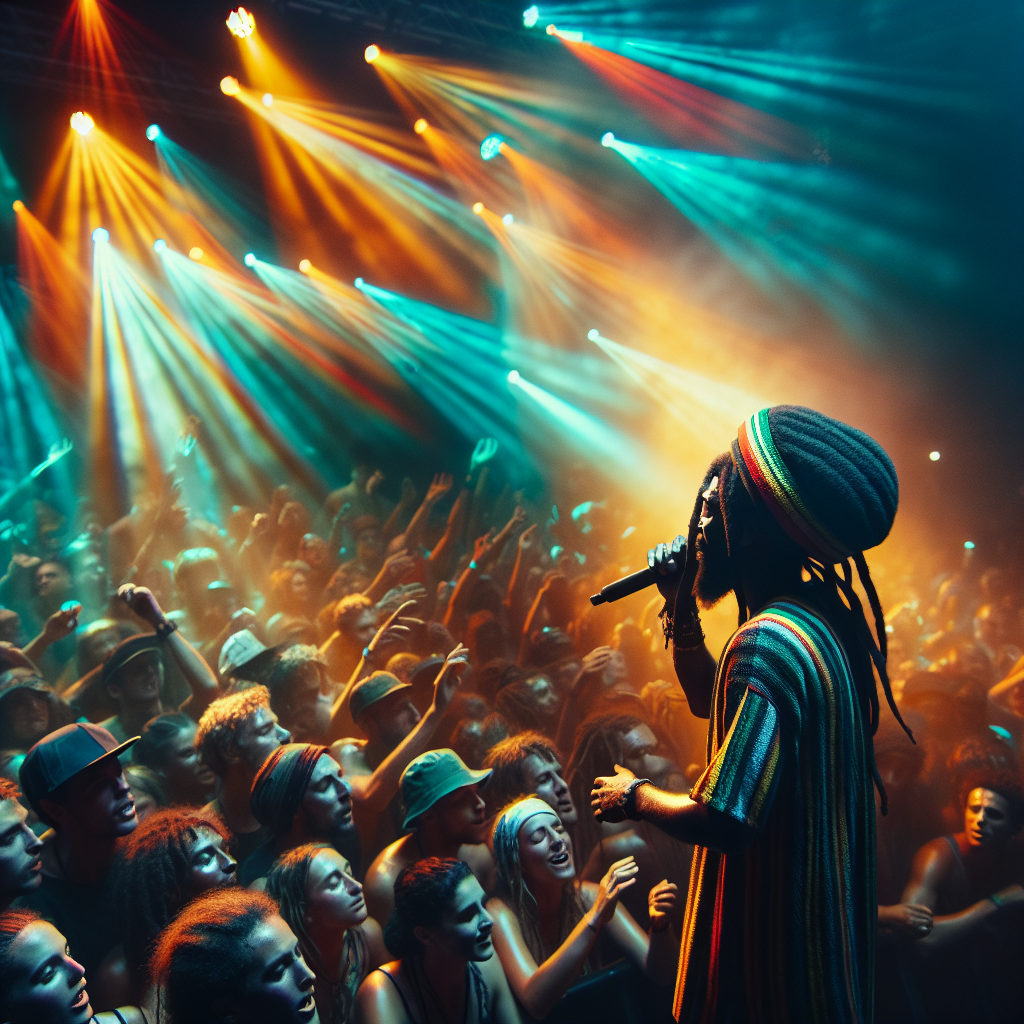Reggae music is more than just a genre—it’s di heartbeat of Rastafarianism. Through its rhythmic beats, powerful lyrics, and deep spiritual undertones, reggae has become a voice of resistance, unity, and spiritual awakening for Rastafarians. At its core, reggae music serves as a tool to spread di teachings of Rastafari, promote love, and call out injustice in Babylon.
Reggae as a Spiritual Force
For Rastafarians, music is a direct link to Jah (God), and reggae is di medium dat carries their message to di world. Di music is not just entertainment—it’s a form of worship, meditation, and communication with Jah. Each rhythm and lyric has purpose, designed to uplift di spirit and remind people of Jah’s presence in their lives.
Songs often reference biblical teachings, Haile Selassie I (Rasta’s living God), and di struggle against Babylon (di corrupt system of oppression). In many ways, reggae is a reflection of di Rasta philosophy—simple, soulful, and rooted in truth and justice.
Bob Marley: The Messenger of Rasta Music
No discussion of reggae and Rastafarianism is complete without mentioning Bob Marley, di global ambassador of reggae and Rastafari. His music, filled with messages of peace, love, and resistance, spread di teachings of Rastafarianism worldwide. Tracks like “One Love,” “Redemption Song,” and “Get Up, Stand Up” are not just iconic songs—they are spiritual anthems dat resonate with millions.
Through his music, Marley helped make Rastafarian beliefs accessible to a global audience. His lyrics emphasized spiritual freedom, self-empowerment, and di importance of living in harmony with Jah. For many, Bob Marley’s music was di first introduction to di principles of Rastafarianism, and his legacy continues to inspire new generations.
Reggae as a Tool for Resistance
Reggae is often seen as di voice of di oppressed. In Rastafarian culture, Babylon represents di system of corruption, inequality, and materialism dat Rastas stand against. Reggae music serves as a tool for resisting Babylon by speaking out against injustice and promoting unity and empowerment.
Songs like Peter Tosh’s “Equal Rights” and Burning Spear’s “Marcus Garvey” carry powerful political messages, calling for social change, equality, and justice for di disenfranchised. For Rastafarians, reggae is more than a genre—it’s a call to action against Babylon’s oppression.
Nyabinghi Drumming: Di Spiritual Roots of Reggae
Before reggae became known globally, it was influenced by Nyabinghi drumming, a sacred form of music in Rastafarianism. Nyabinghi drumming is di rhythmic heartbeat of Rasta gatherings, where chanting, meditation, and prayer are combined to connect spiritually wid Jah. These drums, played during Rasta rituals and celebrations, laid di foundation for reggae’s rhythmic structure.
Di slow, steady beats of Nyabinghi drums are meant to mimic di rhythm of life itself, drawing people into a state of meditation and spiritual reflection. Even in modern reggae, di influence of Nyabinghi drumming can be felt, carrying forward di ancient Rasta traditions into a contemporary context.
Reggae’s Global Impact on Rasta Spirituality
One of di most powerful aspects of reggae is how it has spread Rastafarianism to every corner of di world. Through di music, people who may have never heard of Haile Selassie I or di principles of Rastafarianism have been introduced to its teachings. Reggae has become a vehicle for spiritual education, spreading di message of Jah to people of all races and backgrounds.
Rastas see dis global spread as part of Jah’s plan, using music to unite people in love, peace, and spiritual awakening. Reggae’s powerful messages of unity and rebellion against injustice resonate with people across cultures, making it di perfect tool for spreading di Rasta way of life.
Reggae and Meditation
For Rastafarians, listening to reggae can also be a form of meditation. Di deep bass lines, soulful rhythms, and uplifting lyrics create an atmosphere where listeners can reflect on their spiritual journey, reconnect with Jah, and find peace in di music’s message. Many Rastas use reggae as a tool for personal reflection, allowing di music to guide dem into deeper states of spiritual clarity.
Conclusion
Reggae music is at di heart of Rastafarian spirituality, serving as a voice for di oppressed, a call to resistance, and a tool for meditation. From di powerful messages of Bob Marley to di sacred rhythms of Nyabinghi drums, reggae continues to inspire people to live in harmony wid Jah and resist di forces of Babylon. Through its music, di spirit of Rastafarianism continues to grow, spreading love, unity, and spiritual freedom around di world.

